
Building a Culture of Accountability in Air Medical Transport Teams
by logrx-admin | February 26, 2026 | EMS, Air Transport
Tracking medication is uniquely more difficult in air medical transport. Accountability is non-negotiable, especially when you’re facing tight timelines, limited space, and rotating crews. Serving hig...
read more

Basic EMT Trauma Assessment Scenarios: Gearing Up for Certification
by logrx-admin | Dec 16, 2024 | EMS, Fire
If you're considering a career as an EMT, you likely know that there's an EMT certification requirement. Should you take your career to the next level and become a paramedic, there's additional licens...
read more
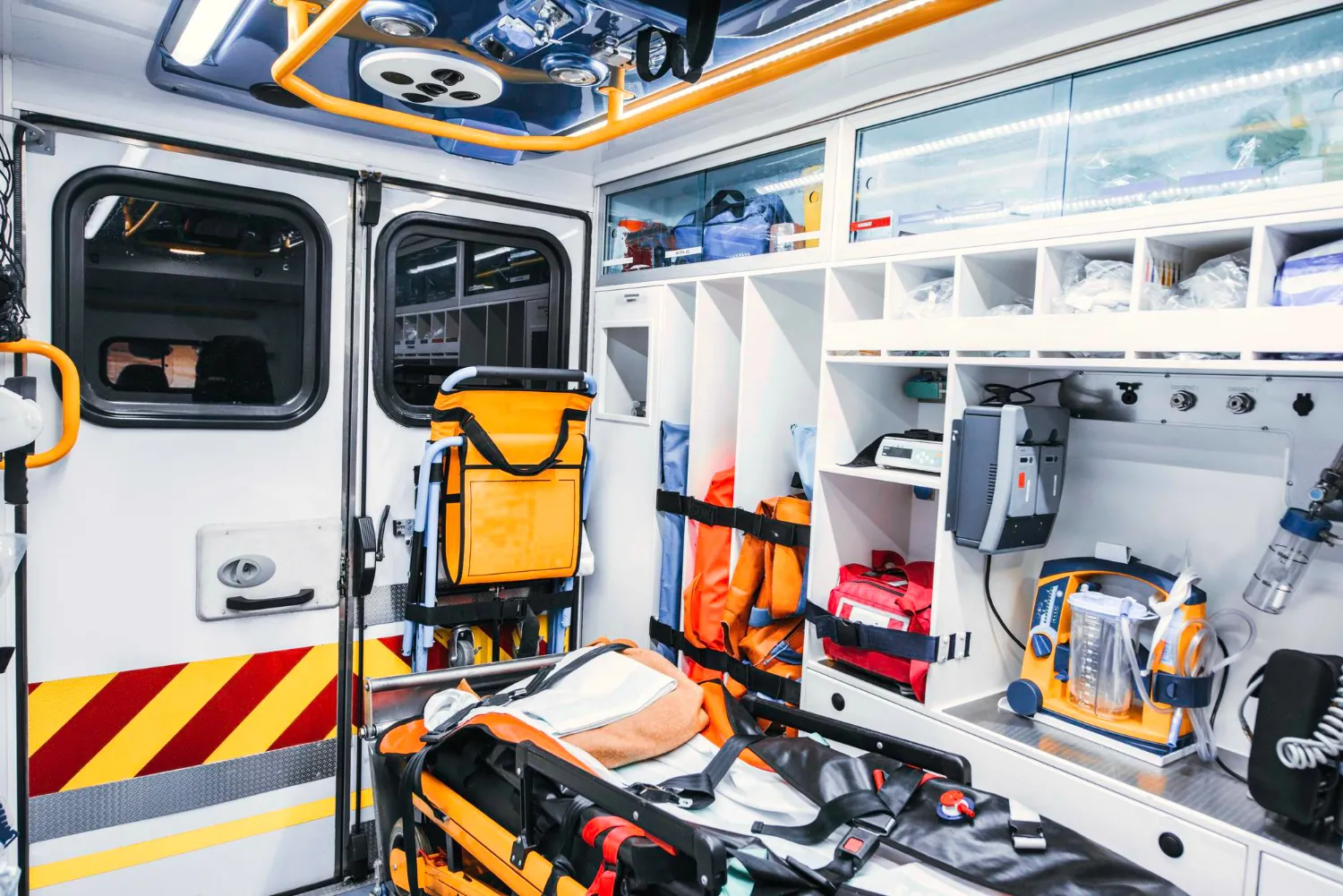
EMS Rig Checks: Best Practices for Rig Checks
by logrx-admin | Feb 7, 2023 | EMS
In EMS, rig checks are one of the most crucial practices for the safety of your patients and your team.
At the beginning of the shift, your crew must go through their truck and perform...
read more

Best Practices for Tracking Temperature-Sensitive Medications in EMS
by logrx-admin | January 23, 2026 | EMS
A surprising number of prehospital treatment protocols call for temperature-sensitive medications. Cardiac arrest, allergic reactions, pain control, sepsis response, whole blood deployment, and many o...
read more

BLOG TITLE HERE
by logrx-admin | DATE HERE | EMS
PARAGRAPHS GO HERE
read more

Connecting Community and EMS: 7 EMS Community Outreach Ideas
by logrx-admin | Feb 6, 2025 | EMS, Fire, Law Enforcement
EMS professionals are much more than just "first responders"-they are an integral part of the community where they serve. Those community connections are vital for building public trust, improving EMS...
read more

DEA Narcotic Tracking Requirements
by logrx-admin | Apr 4, 2023 | EMS, Fire
No matter what industry you work in-EMS, veterinary, wildlife, or another medical field-you likely know
that there are DEA narcotic tracking requirements. There are also state and even...
read more

10 Drug Handling Tips for New Paramedics
by logrx-admin | October 23, 2025 | EMS
Starting a career as an EMT or paramedic? You’re on an exciting and challenging path. Let’s help you start your experience on the right foot with the best practices you need for success. Few aspects o...
read more

LogRx Presents an Ideal Drug Tracking Solution for Wildlife Professionals
by logrx-admin | Nov 4, 2022 | Wildlife
LogRx offers a simple, user-friendly digital solution that allows wildlife and veterinary
professionals to track inventory in real-time and at a glance. Here's how to take the headache...
read more

Effective Emergency Incident Reporting and EMS Narratives
by logrx-admin | Jun 7, 2025 | EMS
Behind every emergency situation is a story—often, capturing those details is essential for patients throughout their treatment journey. While we may think of a PCR (Patient Care Report) as yet anothe...
read more

EMS in Canada vs. United States: Key Differences and Unique Challenges
by logrx-admin | July 23, 2025 | EMS
EMS (Emergency Medical Services) are vital to North America's public safety and healthcare. The United States and Canada operate EMS with the same goal—delivering life-saving, pre-hospital, and emerge...
read more

EMS Inventory Management: 7 Best Practices for Keeping Track of Supplies
by logrx-admin | Jul 1, 2022 | EMS, Fire
Your team gets a call for anaphylaxis, and they jump in their unit to head out. They arrive on the scene
and reach for the Benadryl, only to find out it wasn't replenished on the last ...
read more

EMS Vehicle Checks, Simplified
by logrx-admin | December 1, 2025 | EMS
In EMS, your ambulance, rig, ride, unit, vehicle—whatever you prefer to call it—is your workspace. Like an emergency room on wheels, your vehicle needs to perform flawlessly from start to finish. What...
read more

EMT Off-Duty Response: What You Should Carry Everywhere
by logrx-admin | Dec 30, 2024 | EMS
Maybe you're driving down the street and see an accident, or you're out for the day, and an announcement comes over a loudspeaker, "Does anyone have medical training?" If you're an EMT or Paramedic, y...
read more

Saving Lives and Staying Strong: EMT/Paramedic Physical Requirements and Fitness Tips
by logrx-admin | Nov 7, 2024 | EMS, Fire
There's an assumption that EMTs (Emergency Medical Technicians) and paramedics are all in great shape
because of the physical requirements of being a first responder. But stress, acces...
read more

Exploring the Inside of an Ambulance: Orienting New EMTs and Paramedics
by logrx-admin | Aug 4, 2023 | EMS, Fire
So, you're bringing on a new team member. It's crucial to orient new EMTs and Paramedics to everything on
the unit. It's helpful to go through all the different components and ensure t...
read more

Exploring the Most-Used EMT Medications
by logrx-admin | Jan 9, 2024 | EMS
When your unit is called to an emergency, it's important to have your complete inventory stocked, but
you'll want to be sure you have plenty of the most-used EMS medications on hand. C...
read more

Homeless Addiction Treatment with Buprenorphine/Naloxone: A First Responder Perspective
by logrx-admin | Feb 1, 2024 | EMS
In the realm of firefighting, where we brave the flames to save
lives, a new battlefront has emerged – the intersection of homelessness and addiction. As
firefighter/pa...
read more

Why Fire Departments Should Digitize Their Controlled Substance Workflows
by logrx-admin | February 27, 2026 | EMS, Fire
These days, many fire departments face pressure to do more with less. There are staffing challenges, increasing call volumes, lowered budgets, and expanding regulatory requirements that all add up to ...
read more

Following the EMS Code of Ethics: Why It Matters Before the Emergency Starts
by logrx-admin | Jun 10, 2025 | EMS
In an emergency, every moment counts. Life-or-death decisions often have to be made in seconds, so it’s absolutely crucial to have a strong EMS code of ethics to help guide those decisions. The EMS co...
read more

Narcotics Management is a Team Effort: 5 Ways to Get Your Crew to Embrace New Technology
by logrx-admin | Jan 31, 2023 | Air Transport, EMS, Fire, Law Enforcement, Veterinary, Wildlife
It's a tale as old as time. People resist change, especially when it includes technology and learning new
processes. So, when you introduce a new way of tracking controlled substances,...
read more

Preventing "Grey Market" Diversion in EMS
by logrx-admin | August 28, 2025 | EMS
When people hear the term “drug diversion,” their mind often turns to outright theft, like a medic pocketing a vial of narcotics or a supply cabinet that’s broken into after hours. But the reality is ...
read more

LogRx and Knox: How LogRx Integrates with EMS Medication Lockboxes
by logrx-admin | April 7, 2025 | EMS, Fire
Secure medication storage is imperative in EMS. EMS providers handle controlled substances under intense scrutiny due to DEA requirements, Local Emergency Medical Service Agency (LEMSA) policies, and ...
read more
.webp?t=1772173293989)
How to Conduct a Narcotics Audit Without Losing a Weekend
by logrx-admin | October 9, 2025 | EMS
We’ve all been there: facing down a narcotics audit for our department with nothing but a stack of paper logs, a spreadsheet, and a prayer. Audits are a non-negotiable part of EMS operations. The Drug...
read more
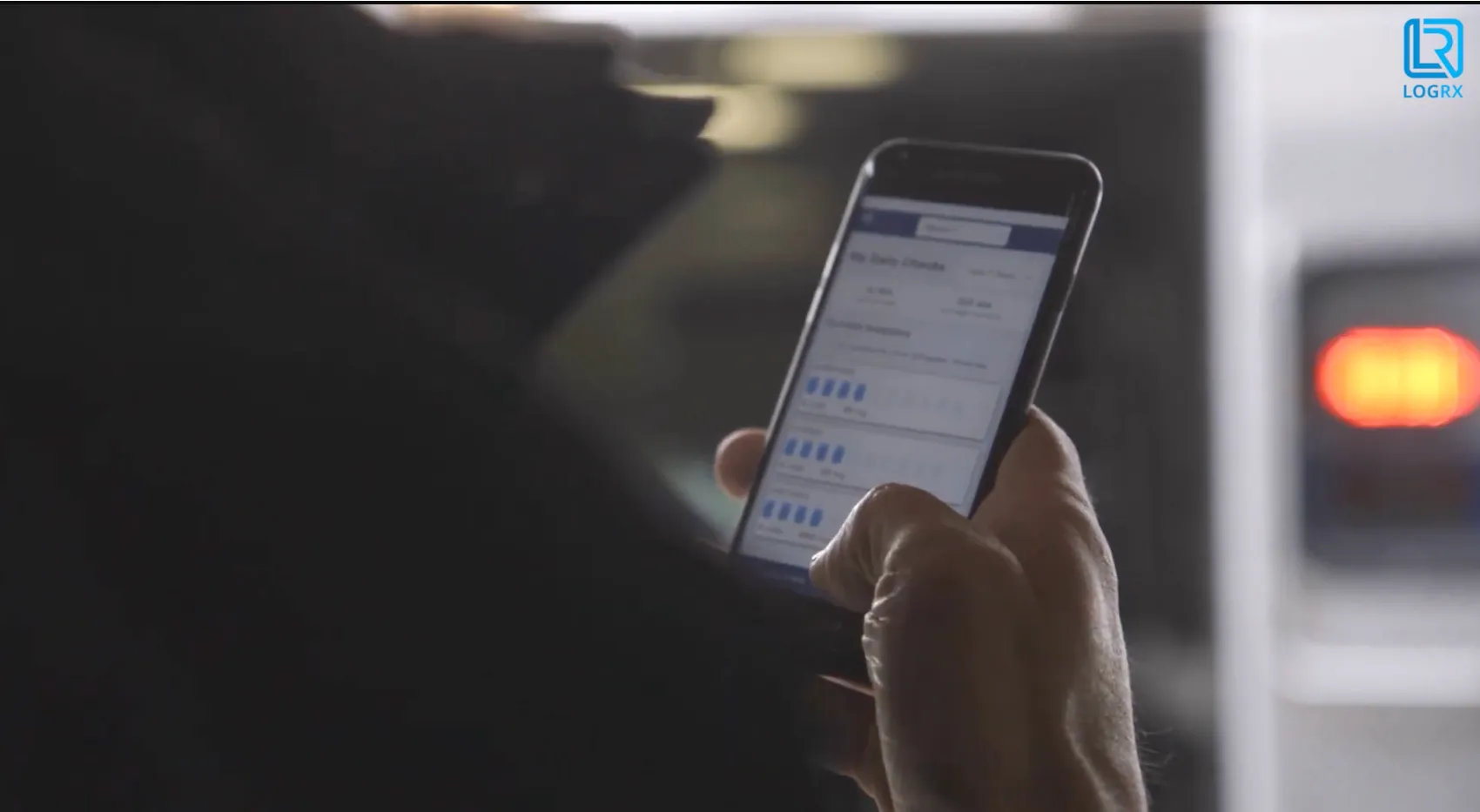
Why LogRx Prioritizes Mobile-First Design for Field Software
by logrx-admin | December 29, 2025 | EMS
EMS isn’t a desk job. In fact, it’s rare that you even get to take a pause, whether you’re on the highway, in a home, on a remote trail, in an ambulance bay, or responding to a call downtown. If you w...
read more

How Medication Tracking Improves Response Times in EMS
by logrx-admin | February 28, 2026 | EMS
Response time is critical in EMS. It’s one of the most closely monitored performance metrics, which makes all the difference in urgent situations. Between dispatch efficiency and crew availability, a ...
read more

What Mental Health Clinics Must Know About Medication Dispensing Logs
by logrx-admin | January 9, 2026 | EMS
Mental and behavioral health medication management has become more complex in recent years. More and more mental health clinics are dispensing medications onsite and storing them for in-chair administ...
read more

Mental Health Clinics
by logrx-admin | May 13, 2025 |
Protect your clinic and your patients with medication tracking Positive research is growing in support of the progressive field of novel psychiatric treatments. As
mental
...
read more

Narcotic Tracking Under Pressure: 4 Tips for Maintaining Calm as a Paramedic
by logrx-admin | Sep 11, 2023 | EMS, Fire
When the pressure is on in an emergency, you rely on your training and muscle memory to guide you through
the proper steps. Controlled substance tracking, maintaining inventory, and ot...
read more

EMS Shift Changes: Narcotics Handoffs Can Lead to Gaps
by logrx-admin | November 6, 2025 | EMS
In emergency response, the most chaotic part of the day often isn’t racing to respond to a critical call. Those moments are expected and part of what makes the job so fulfilling. No, the most chaotic ...
read more

Narcotics Tracking in Veterinary Medicine: Protect Your Practice
by logrx-admin | Jul 1, 2022 | Veterinary
There's a need for inventory and prescription drug monitoring in every practice, medical, veterinary, or
otherwise. Regulations and rules surrounding narcotics tracking in veterinary m...
read more

Navigating The Modern Recruitment Maze: Overcoming Challenges in Hiring Paramedics
by logrx-admin | Apr 2, 2024 | EMS
One of the biggest hurdles in today's healthcare landscape is recruitment. With the ever-changing demands
of ambulance services and fire departments, this challenge
ext...
read more

Navigating the New Virginia Narcotics Tracking Legislation
by logrx-admin | Dec 4, 2024 | EMS
If you live in Virginia or any of the DMV areas, you've likely heard information about the new Virginia narcotics tracking legislation. You might be wondering how it will impact your EMS unit and team...
read more

Navigating the Numbers: EMT/Paramedic Salary
by logrx-admin | Oct 24, 2024 | EMS
Whether you want to help people, enjoy a fast pace, or have a talent for keeping a cool head, you might
be thinking of a career in Emergency Medicine. Becoming an EMT or paramedic is a...
read more

by logrx-admin | |
read more

Preparing for a Successful EMS Audit
by logrx-admin | May 8, 2023 | EMS
So, you're trying to prepare your EMS agency for an audit. Depending on the type of audit, it can evoke
some worry. Audits come in many varieties, but any time an authority assesses yo...
read more

Preventing Drug Diversion with Accountability
by logrx-admin | Jan 19, 2023 | Air Transport, EMS, Fire, Law Enforcement, Military, Veterinary, Wildlife
No one likes to think about it but preventing drug diversion is the responsibility of anyone who works
with controlled substances. Diversion refers to the illegal misuse and distributi...
read more

Prioritizing the Most Critical: Steps in Effective EMS Triage
by logrx-admin | Aug 7, 2024 | EMS
When you arrive at the scene of any emergency with multiple victims, you likely know that the first step
is triage-assess who needs the most urgent, immediate care (not necessarily the...
read more

Projecting Professionalism: Why EMS Uniforms Matter
by logrx-admin | Jan 16, 2025 | EMS
One of the most essential parts of the EMS gear isn't inside your ambulance-it's what you wear on your body when you're on duty. Now, not everyone loves uniforms, and some uniforms don't always put co...
read more
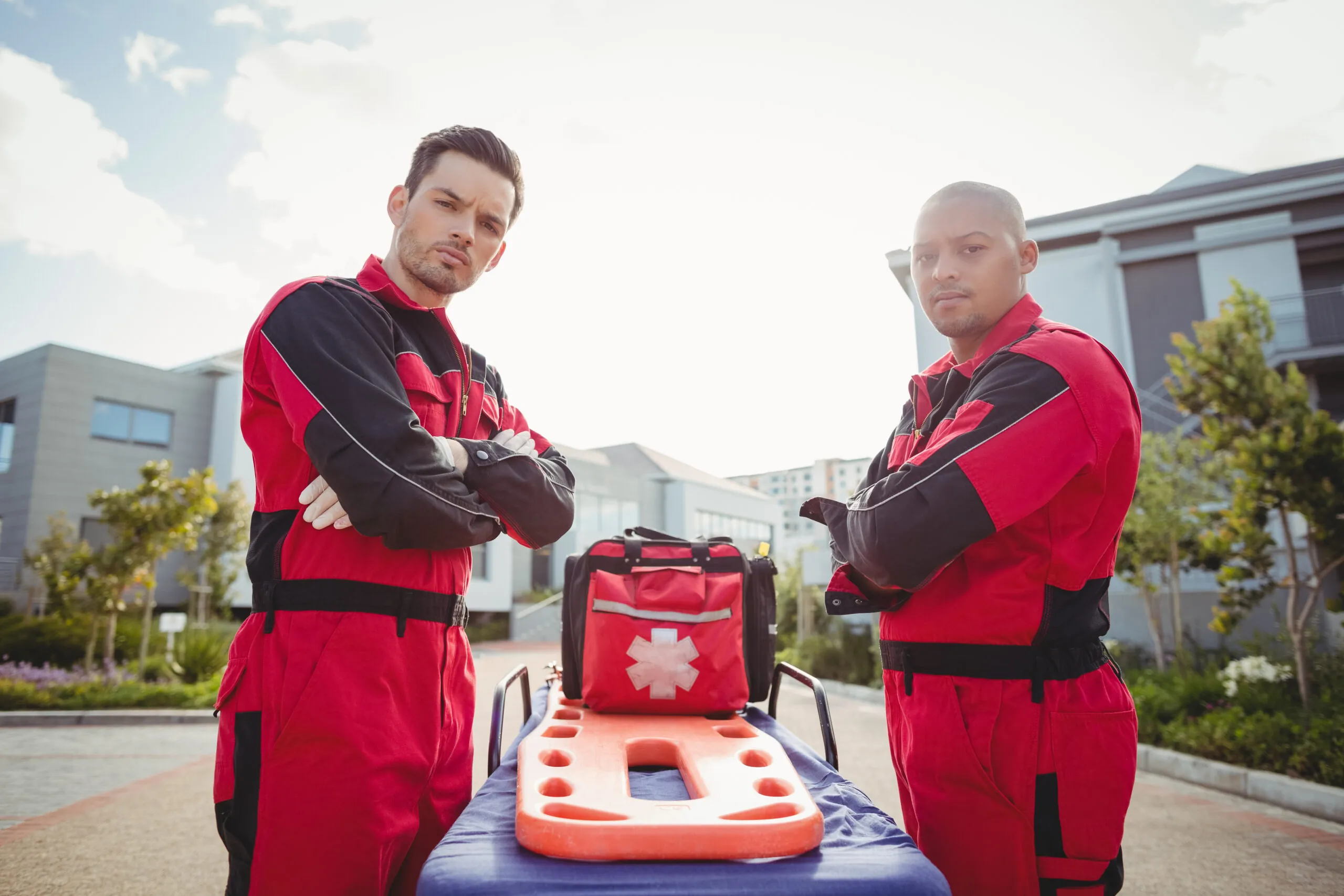
Protect Your Narcotic Lockbox with the Right Tracking
by logrx-admin | Jul 4, 2023 | EMS
The DEA requires secure storage for all controlled substances to protect against misuse and diversion.
For most EMS providers, this means a narcotic lockbox on each rig and in the stat...
read more

Protecting Yourself from the Flames: How to Beat EMS Burnout
by logrx-admin | Jul 9, 2024 | EMS
Burnout amongst EMS providers is a harsh reality. Even if you don't feel it all the time, there are
points when the stress can become overwhelming. The risk of burnout is high, and str...
read more

7 Reasons Clinic Narcotic Tracking Software is a Crucial Investment
by logrx-admin | Aug 16, 2023 | Air Transport, EMS, Fire, Law Enforcement, Military, Veterinary, Wildlife
If you're running a medical clinic or even a veterinary clinic, you may assume you don't need to invest
in narcotic tracking software. Perhaps your organization is very small, or you o...
read more

Risks of Drug Diversion in Air Medical Transport
by logrx-admin | September 5, 2025 | Air Transport, EMS
Air medical transport is one of the most demanding jobs in the healthcare industry and beyond. Air ambulance crews must stabilize critical patients in high-pressure conditions, in a confined space wit...
read more

10 Signs of Paramedic PTSD
by logrx-admin | Oct 12, 2023 | EMS, Fire
According to paramedic PTSD statistics, first responders have a
much higher rate of traumatic stress than the general population. We all know that burnout can happen, especially in our...
read more

Are You Still Using Controlled Drug Log Sheets in Your Veterinary Practice?
by logrx-admin | Mar 13, 2023 | Veterinary
If you handle narcotics and other restricted schedule drugs in your veterinary practice, you know the
importance of keeping controlled drug log sheets. While these sheets are often inc...
read more

Challenges of Air Medical Transport in Canada
by logrx-admin | December 8, 2025 | EMS, Air Transport
Air medical transport saves lives every day across North America, but the landscape in Canada presents distinct challenges that few other areas face. With vast geography, unpredictable weather, limite...
read more
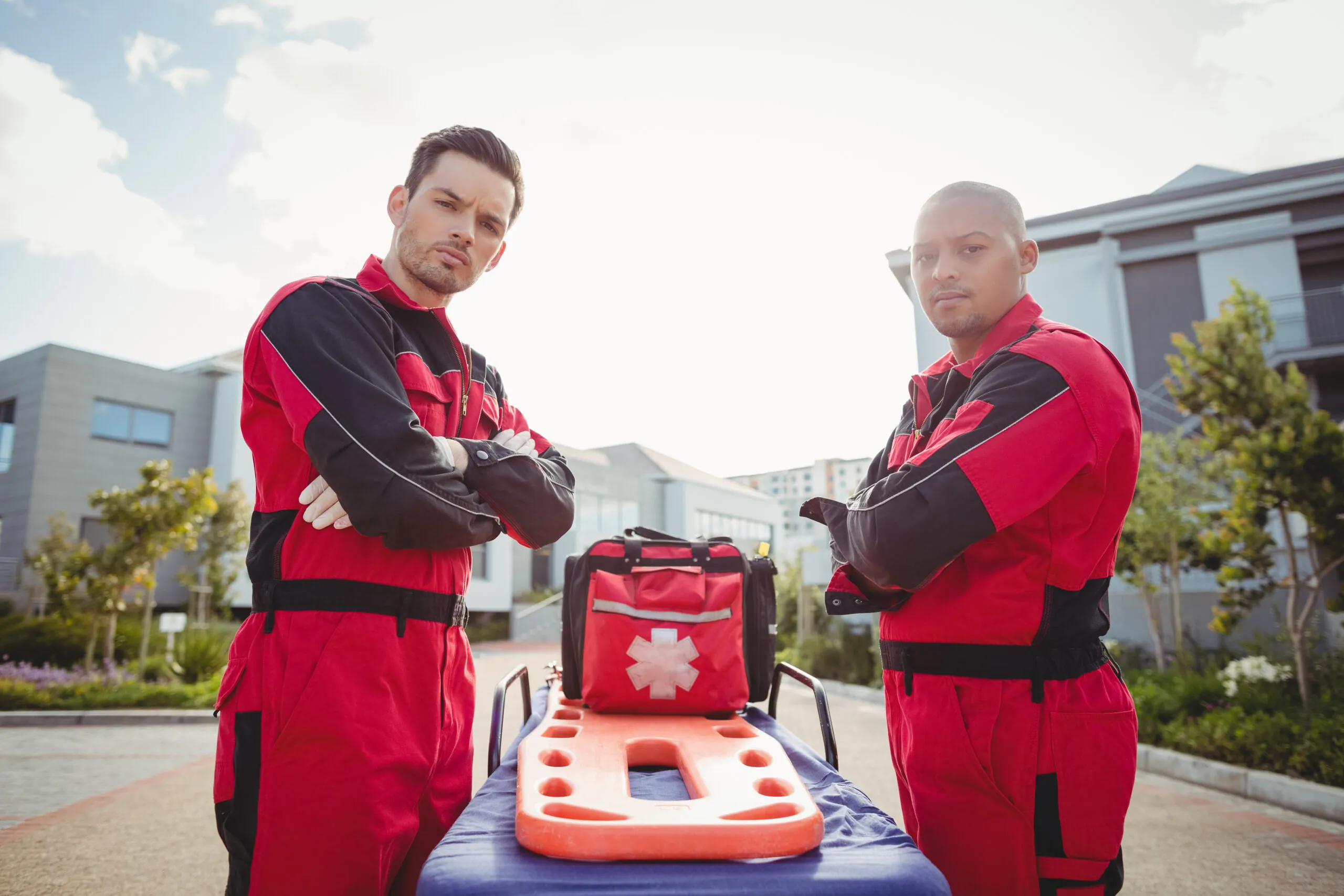
The Role of Air Ambulance Services in Rural Trauma Response
by logrx-admin | August 14, 2025 | Air Transport
In trauma care, time isn’t just money; it's everything, even life. Patients who live in urban areas receive help from ground ambulances just blocks away, and medical facilities are conveniently close....
read more

Tracking Narcotics on Paper: A Big Problem in EMS
by logrx-admin | Jul 1, 2022 | EMS, Fire
Your team is treating a critical patient en route to the hospital-scribbling notes on a clipboard or even
on a piece of tape on their leg. They must remember everything about the event...
read more

Medication Abbreviations 101: Understanding Acceptable Medication Abbreviations
by logrx-admin | May 6, 2025 | EMS, Fire
When you’re working in emergency medicine, you know that accuracy and clarity in communication are everything—in fact, in some cases, it's the difference between life and death. We all love shortcuts,...
read more

US vs UK EMS: Differences and Similarities in Emergency Response
by logrx-admin | Oct 18, 2023 | EMS
In the United States, we're used to our standards of providing emergency medical services. So, it's
eye-opening when an American first responder goes abroad and does a ride-along with ...
read more

Want to Be a Paramedic? How EMS Workers Get Their Start
by logrx-admin | Jun 6, 2025 | EMS
Are you looking for a meaningful career? Do you like fast-paced environments, helping people, and exploring the medical world? Are you calm under pressure? If you answered yes, an emergency medical se...
read more

What Fire and Police Can Learn from EMS About Narcotics Tracking
by logrx-admin | December 22, 2025 | EMS, Fire, Law Enforcement
In every sector of public safety, there are several universal truths. One of them is that when controlled substances are involved, accountability is non-negotiable. EMS agencies have set the gold stan...
read more

What Narcotics Logs Reveal About EMS Agency Risks
by logrx-admin | November 10, 2025 | EMS
When we think about risk in emergency medical services, thoughts turn to the call scene. Chaos, injuries, and physical danger are all part of the first responder life. But sometimes risk can also come...
read more
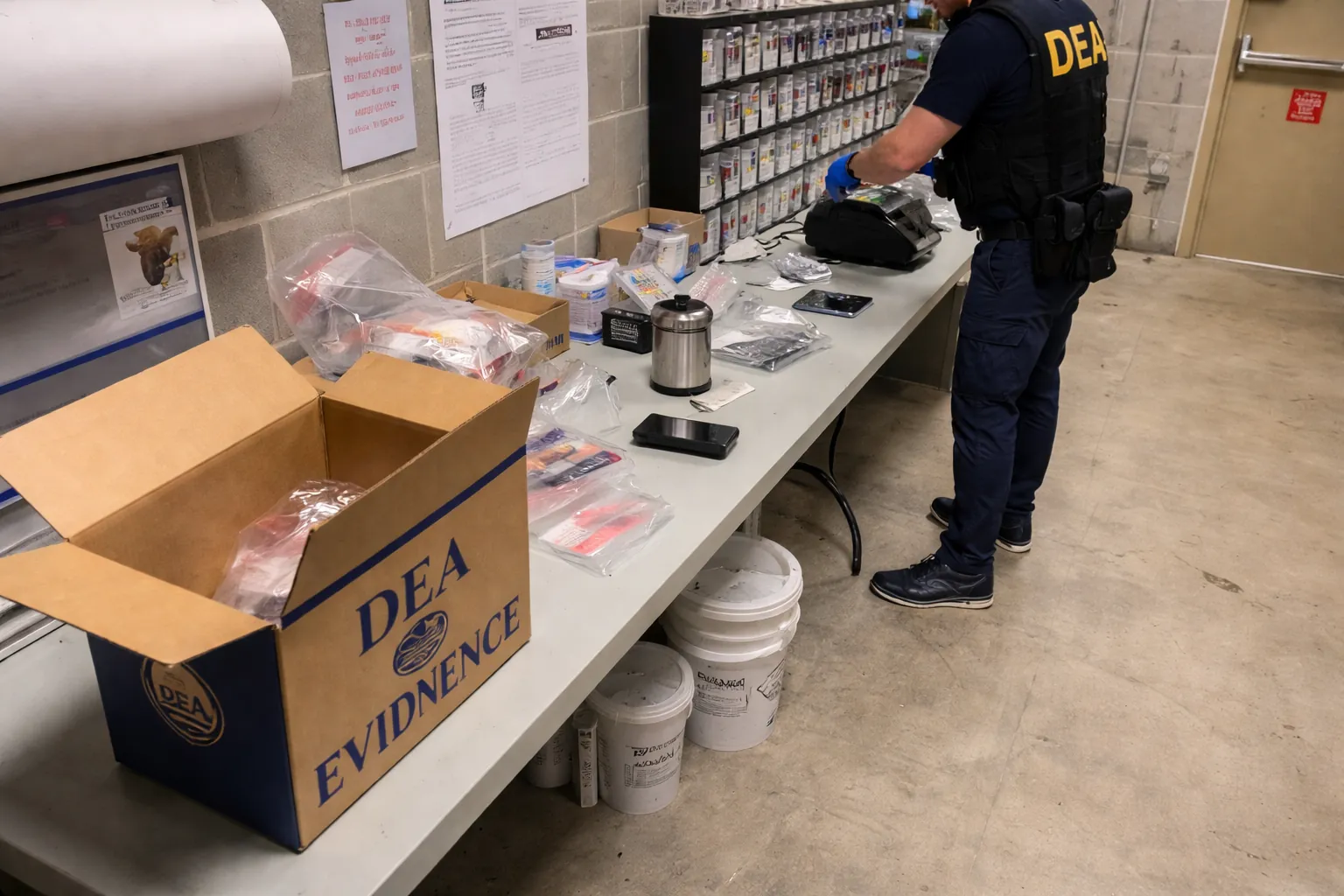
What the New DEA PPAEMA Rule Means for EMS Agencies and How to Stay Compliant
by logrx-admin | February 20, 2026 | EMS, Fire
The Drug Enforcement Administration’s final rule implementing the Protecting
Patient Access to Emergency Medications Act (PPAEMA) marks a turning point in how EMS agencies manage and
d...
read more

What to Know About Air Medical Transport: Careers, Qualifications, and Daily Realities
by logrx-admin | July 23, 2025 | EMS, AIR
It takes a special type of person to work in air medical transport …, but it can be the most satisfying and fulfilling career for the right person. Air medical transport, or air ambulance services, p...
read more
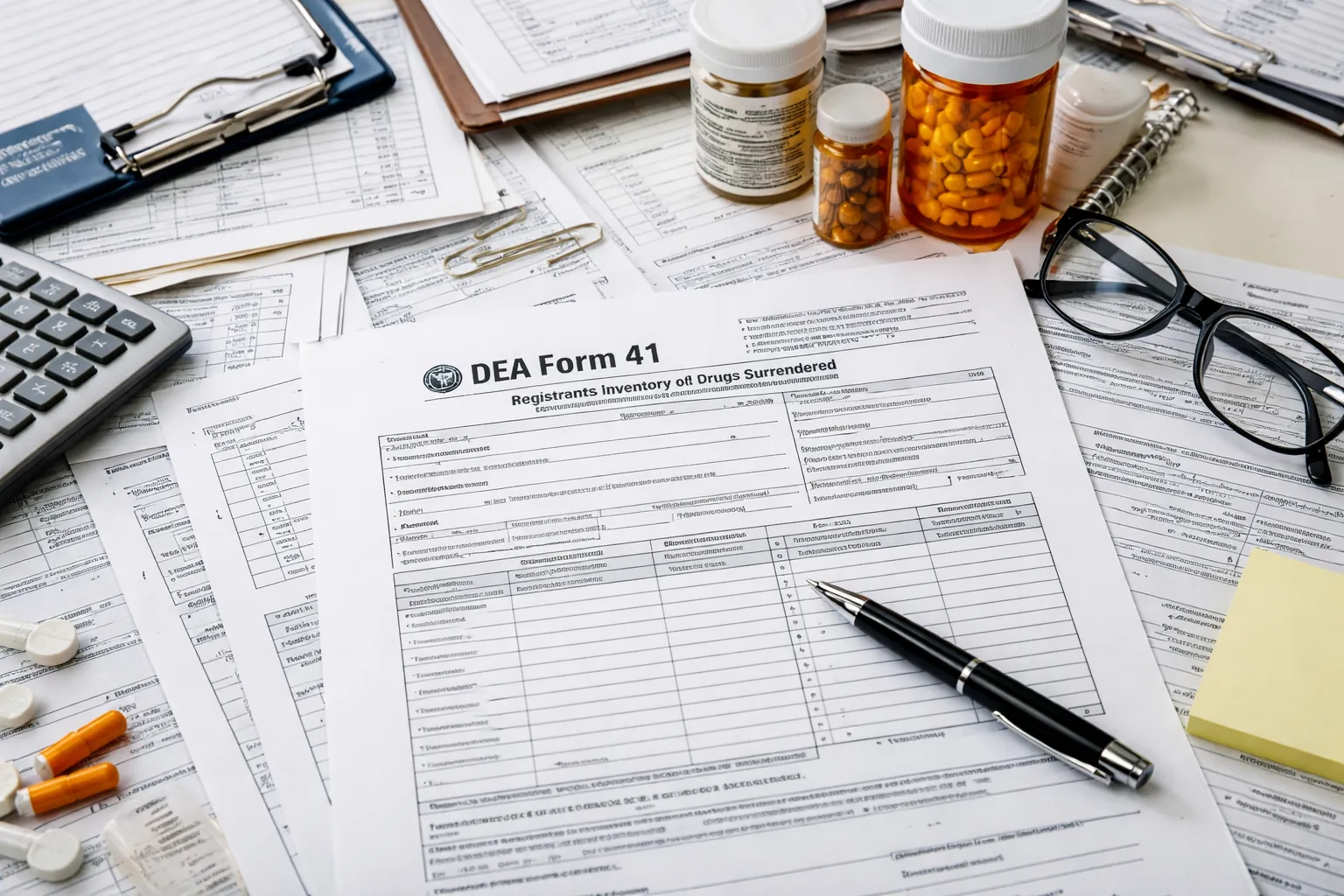
What You Need to Know About DEA Form 41 for Drug Destruction
by logrx-admin | February 19, 2026 | EMS, Fire
Destruction of drugs sounds a little strange, but it’s part of the process the DEA requires for EMS and other first responders when handling controlled substances. It’s important to understand a littl...
read more

What You Need to Know About the DEA's Drug Schedule
by logrx-admin | Dec 7, 2022 | Air Transport, EMS, Fire, Law Enforcement, Military, Veterinary, Wildlife
For those of us who work in industries where we handle pharmaceuticals, we hear the term "scheduled" a
lot. Most of us are familiar with what it means when a drug is scheduled or part ...
read more

When Every Second Counts, Your EMS Drug Bag Matters
by logrx-admin | August 13, 2025 | EMS
Your EMS drug bag is like your mobile medicine cabinet, and in emergencies, medical bags become literal lifelines. These carefully packed bags or pouches are more than just supply kits. They're tailor...
read more

When the Call Ends, the Narcotics Chain of Custody Doesn’t Stop
by logrx-admin | August 15, 2025 | EMS
When a call ends, most emergency responders are thankful for the moment to breathe, restock, and reset before the next dispatch. But when we carry and administer controlled substances, especially narc...
read more
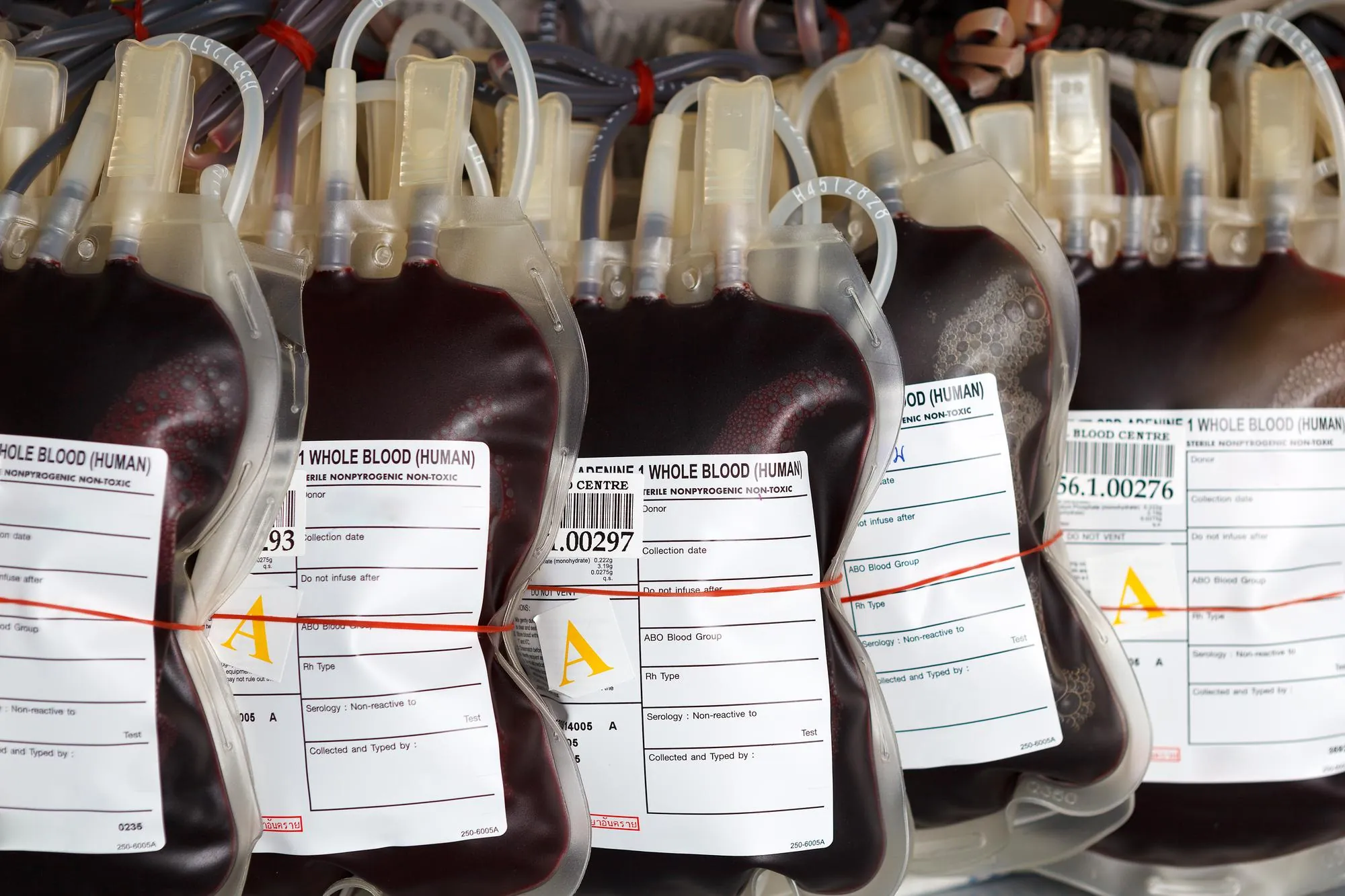
Whole Blood Tracking: A Game-Changer for EMS
by logrx-admin | November 21, 2025 | EMS
EMS professionals carry the tools, the medication, and the know-how to save lives in the field. But for traumatic injuries and hemorrhaging, administering blood in the field has been an impossible tas...
read more

Why EMS Culture Resists Software Adoption (and How LogRx Helps)
by logrx-admin | September 18, 2025 | EMS
Paramedics and EMTs are ready to respond under pressure. They can adapt in the field and do what’s needed to deliver patient care in life-or-death situations. However, when adopting new technology, su...
read more
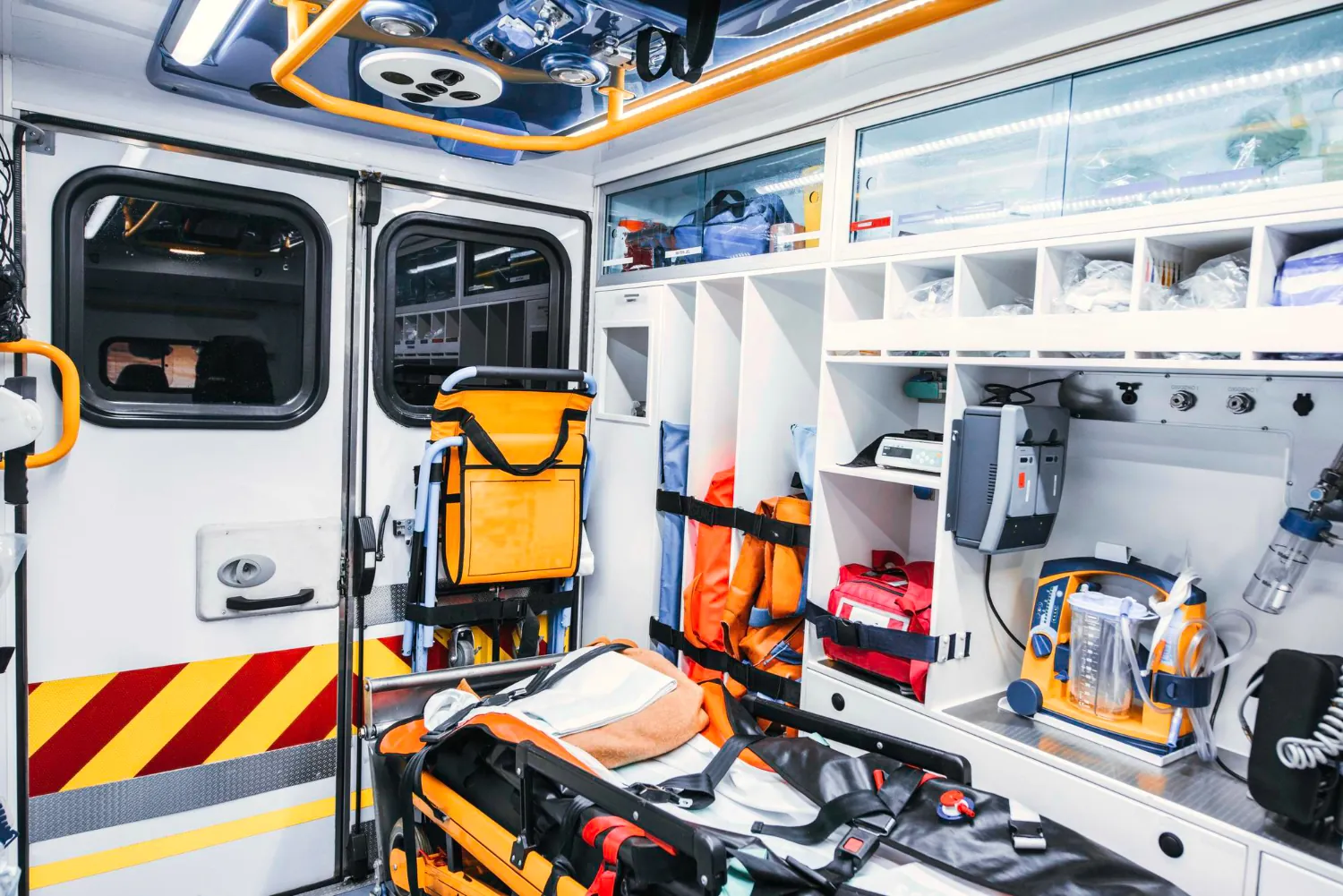
Why States Are Moving Away from Paper Narcotics Tracking
by logrx-admin | September 8, 2025 | EMS
Recently, Virginia passed legislation that prevented hospitals from serving as the storage location of narcotics for EMS providers. As a result, EMS agencies in Virginia had to begin managing their o...
read more

Why States Are Moving Away from Paper Narcotics Tracking
by logrx-admin | July 31, 2024 | EMS
Recently, Virginia moved away from paper narcotics tracking in favor of digital solutions. This change impacts EMS professionals, as well as those in the healthcare and pharmaceutical industries. We'v...
read more

Xylazine Misuse and DEA Compliance: How Agencies Can Stay Ahead of the Threat
by logrx-admin | August 23, 2025 | EMS, AIR
Whether you've heard much about Xylazine yet, chances are you will in the future. Use and misuse of the drug, also known as tranq dope, is continuing to evolve in dangerous new directions. In 2018, th...
read more
.webp?v=0029f25be6)






















.webp?t=1772173293989)





































